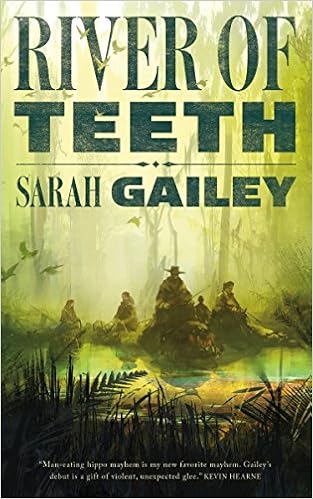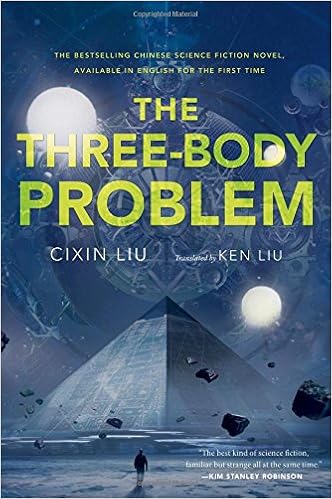written by David Steffen
I’ll try to keep spoilers out of the review and just talk on broad arching principles and maybe a few specifics that aren’t major plot points. Since this is a series of fourteen huge books, that limits a great deal of what I could talk about. But I’ll do my best.
I had nominated the final book of the series, A Memory of Light, for the Hugo Award, but it is not just the final book but the whole series that is up for nomination. I had no idea this was a possibility until it happened. It’s only allowed if none of the individual books were on the final ballot in previous years, and I think the idea is to consider a single long work as a whole if it has a continuous plot arc from beginning to end. So, that’s what happened.
Some people on the Internet are making a stink about The Wheel of Time series being on the final ballot, complaints that some Wheel of Time fans might start a voting bloc, etc etc. There’s drama every year, and this isn’t even the biggest drama of this year. If you want to get worked up about such things, go for it, but it’s operating entirely within the rules so if you don’t like it, try to influence a change in the rules. Otherwise, IMO, there’s not really anything to complain about.
Plus, if you buy a supporting membership for WorldCon this year to get the right to vote which costs $40, then you get the entire Wheel of Time series in ebook format at no additional cost. That is seriously cool.
History of the Series
The Wheel of Time is an epic other-world fantasy series created by Robert Jordan. Robert Jordan wrote the series up to book eleven: The Eye of the World, The Great Hunt, The Dragon Reborn, The Shadow Rising, The Fires of Heaven, The Lord of Chaos, Path of Daggers, A Crown of Swords, Winter’s Heart, The Crossroads of Twilight, and Knife of Dreams, published between 1990 and 2005.
In 2006, Jordan publicly announced that he he had been diagnosed with cardiac amyloidosis. He passed away in September 2007, having left copious notes and partial sections written of what he intended to be the one final book. After some long consideration, Brandon Sanderson was chosen as the writer to complete the writing of the series using Jordan’s notes. In Sanderson’s words, he said that there were certainly better writers than him, and there were certainly bigger Wheel of Time fans than him, but he was probably the best choice to maximize both of those concerns at once.
Brandon Sanderson finished writing the remaining sections of and compiling what ended up being the final three books of The Wheel of Time: The Gathering Storm, Towers of Midnight, and A Memory of Light, published in 2009, 2010, and 2013 respectively.
Review
Most people who’ve tried reading the series fanatically love it, fanatically hate it, or fanatically love it until about book ten at which point they lost interest and never finished the rest.
Those who fall into that last category: I encourage you to give the rest of the series a try. As a whole, I see value in almost all of the books in the series, though there’s certainly some uneven qualities. Book ten, The Crossroads of Twilight, is the exception. I went on at length about that particular book in a separate review, so I won’t go into it here. Suffice it to say that nothing happens at great length for a long book, until literally the final page when something finally happens. So, you might just want to read a general summary, read the last few pages, and move on to Knife of Dreams. Granted, I wouldn’t listen to someone’s advice if they told me that, but if you do insist on reading it, just keep in mind it is not representative of the quality of the series after it, so at least try Knife of Dreams.
I’ve also written up a separate review for A Memory of Light, the last book in the series, which you can find here.
The first book starts with a sudden influx of strangers into the town of Emond’s Field in the Two Rivers, where three young men of very similar age live: Rand al’Thor, Matrim Cauthon, and Perrin Aybara. It seems like these are just visitors for the holidays, but it’s no coincidence that the town is attacked by Trollocs, beasts the locals believe to only be myths. One of the strangers in town, Moiraine Damodred and her warrior companion Lan Mandragoran, smuggle the boys out of town, claiming the attack was directed at finding them. The first book follows that group as they are pursued by Trollocs as they try to journey to Tar Valon where they can be protected.
The series goes on in various directions from there, most of which I can’t really talk about without getting into heavy spoiler territory. This is and always will be one of my favorite series, and it’s definitely getting my vote for the Hugo Award for Best Novel this year.
The Good Parts
- Imaginative worldbuilding with a variety of detailed cultures
- A cool and detailed magic system
- The first book stands well alone as a standalone read
- Most of the books in the series are memorable in their own right
- Colorful and interesting cast of villains
- If you like the story, there’s certainly a lot of it
The Bad Parts
- The Crossroads of Twilight
- The Crossroads of Twilight
- A few of the other books relatively unmemorable
- Some of the characters fall into the same personality cliches repeatedly (I still love them but it’s hard not to see)
- Seriously, The Crossroads of Twilight. Yes it deserves to be on this list three times. It’s really that bad.
- Some of the advancements in magical abilities are unexplained spontaneous jumps that don’t seem to fit into the worldbuilding
- Some inconsistencies with how magic is explained in the first book with how it’s used in the rest of the series.
- Sometimes the italicized internal monologuing gets excessive.
The Series’ Effect on My Life
I first came across The Wheel of Time when I was in about seventh grade. I was at a Barnes & Noble waiting for my mom to pick me up. To kill some time I went to the Science Fiction and Fantasy section and grabbed the book from the endcap with the most appealing cover, which happened to be book seven or eight of The Wheel of Time series by Robert Jordan. From there I went into the aisle and found book one of the series: The Eye of the World. I sat down and started reading and it drew me right in with the young man Rand al’Thor and his father Tam walking through a bitter cold wind and glimpsing a mysterious stranger. I was sorely disappointed when my mom got there and we had to go without the book.
At the time I lived in a tiny town with a pathetic closet of a library that mostly contained romance novels, and a school library that was no better. So without money I didn’t have a quick way to access it. I had a little side job delivering advertising newsletters for small amounts of money, so I spent those meager paychecks buying the books in The Wheel of Time series.
That was during a time of my life where I felt very isolated, having no car and living a couple miles outside the closest town which only had a population about 500 people. I’d moved there when I was ten, by which time the social cliques were very well cemented, and in the eight years that I lived there I never really felt part of any group. Reading and video games got me through a lot of that time, keeping me entertained enough to stay sane and The Wheel of Time was a big part of that as the next several books came out through the high school years, and each time a new book came out I would re-read the series again in preparation.
In college, things were much better, but there were still some rough times. One of the worst kind of times were nights in the dorm sophomore year when I lived in a room next to a sorry excuse for a human being who played music and video games at all time of night with the subwoofer planted against the wall with no consideration of other people’s sleep. Talking to him accomplished nothing. Talking to the dorm master accomplished nothing. There was one particular night where he was playing Counterstrike until 3am with the machine guns and grenades pounding the walls. I had to get up at 5am to work at a gas station the next morning. I managed to get through that night without killing anyone and without having a nervous breakdown, and I owe that at least in part to a meditation technique that our main protagonist Rand al’Thor learns in the very first book. I used that technique and even though I was awake for most of the night, just kind of watching the clock and lying still, I still felt rested enough the next day.
And, The Wheel of Time has even molded some of my strategies for life. One of the elements of the series that I found very compelling was ji’e’toh, the systematic system of honorable behavior followed by the warlike clans of the Aiel. There are many details of it, but one of the things that I took from the system was that sometimes you have to do things you don’t want to do, sometimes you want to do things that will have consequences you’d rather avoid. But what is generally best is just to do what you need to do and then willingly pay the price required for it. It may not seem profound at the surface, but I’ve found that a lot of everyday problems can be broken down to that level: just asking what you need to do, and asking what you need to pay to do it.
Bottom line: it’s got my top vote for the Hugo Award, and it probably would no matter what other books it was running against. Any other year, Ann Leckie’s Ancillary Justice would probably be my favorite, but The Wheel of Time has had a huge impact on me.
 Did you know that in the early 20th century the United States Congress considered a bill to populate the Louisiana bayou with hippopotamuses to serve as a new source of meat during a meat shortage? In River of Teeth, we get to see an alternate history where that law passed and some decades later there are hippo-riding “hoppers” which are something like cowboys.
Did you know that in the early 20th century the United States Congress considered a bill to populate the Louisiana bayou with hippopotamuses to serve as a new source of meat during a meat shortage? In River of Teeth, we get to see an alternate history where that law passed and some decades later there are hippo-riding “hoppers” which are something like cowboys.
 Chasing the Phoenix is a science fiction novel by Michael Swanwick,
Chasing the Phoenix is a science fiction novel by Michael Swanwick,  Less than a month ago, just before the Hugo Award voting deadline,
Less than a month ago, just before the Hugo Award voting deadline, 